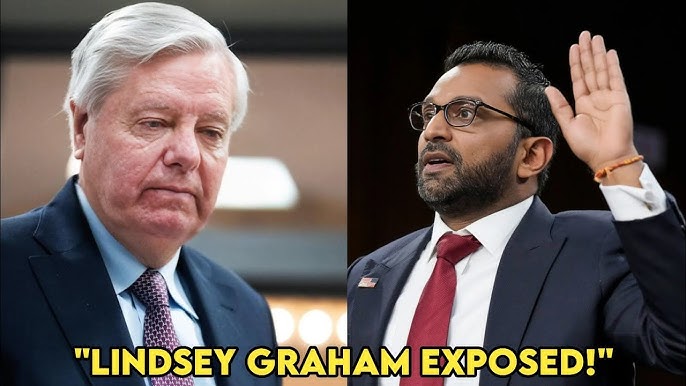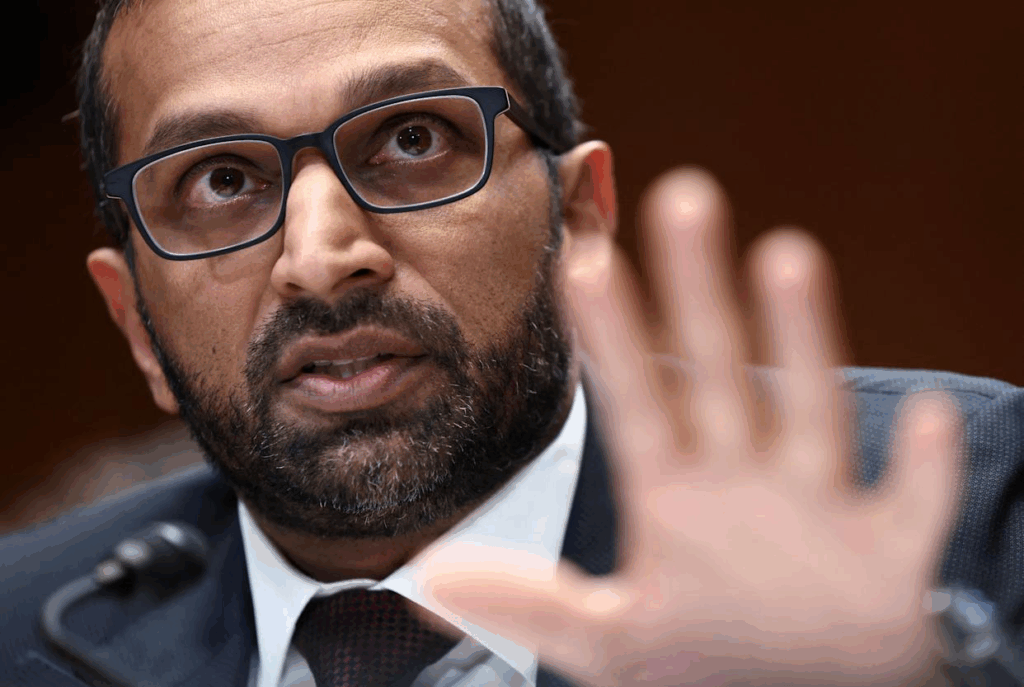He pulled out the files—Lindsey Graham was SC@RED as Kash Patel REVE@LED his corruption, the scene then unfolded what… – papasuke

In a stunning and dramatic scene that has sent shockwaves through Washington, U.S. Senator Lindsey Graham, known for his staunch Republican loyalty, was visibly rattled when Kash Patel, President Donald Trump’s nominee and now confirmed FBI Director, pulled out files exposing deep-rooted corruption within the political establishment. The revelation not only horrified Graham but also laid bare the extent to which partisan politics and institutional corruption have infiltrated America’s justice system. This explosive moment has ignited fierce debate about the integrity of the FBI, the role of political influence in law enforcement, and the future of American democracy.

Kash Patel, a former House Intelligence Committee staffer and close Trump ally, has long been a controversial figure. His rise to FBI Director was marked by fierce opposition from Democrats and skepticism from some Republicans, who feared his outspoken criticism of the “deep state” and his vow to root out corruption could politicize the Bureau rather than restore its credibility. Yet, during a recent confrontation with Senator Graham, Patel’s unveiling of incriminating files revealed a side of the political elite that few expected to see publicly exposed.
The files detailed instances of misconduct and manipulation by high-ranking officials, including evidence that some FBI investigations—most notoriously the Crossfire Hurricane probe into alleged Trump-Russia collusion—were tainted by bias and deceit. Patel’s revelations confirmed suspicions that the FBI had been weaponized against political opponents, with agents openly expressing hatred for Trump and a determination to prevent his presidency, as documented in text messages between former agents Lisa Page and Peter Strzok. This admission alone was enough to shake Graham, who had previously defended the FBI’s integrity but now found himself confronted with undeniable proof of corruption within the very institution he had supported.

What followed was a tense and revealing exchange. Graham, who once questioned Patel about the politicization of the FBI, appeared unsettled as Patel detailed threats he had received due to his investigations and his commitment to exposing wrongdoing. Patel’s courage in confronting entrenched interests contrasted sharply with Graham’s discomfort, highlighting the growing divide within the Republican Party itself.
This confrontation has sparked a broader controversy. Supporters of Patel argue that his actions are necessary to cleanse the FBI of political bias and restore trust in an agency that has been undermined by partisanship. They see Patel as a fighter who dares to challenge the “deep state” and hold powerful figures accountable, even if it means exposing uncomfortable truths about allies and adversaries alike. For them, Patel’s revelations are a long-overdue reckoning that could lead to a more transparent and accountable government.

Conversely, critics warn that Patel’s approach risks further politicizing the FBI and eroding public confidence in law enforcement. They argue that weaponizing the Bureau for political ends—regardless of which side benefits—undermines the rule of law and threatens democratic norms. Democrats, in particular, have expressed concern that Patel’s tenure could lead to the persecution of political opponents and the suppression of dissent, citing his past statements about prosecuting “deep state” actors and journalists. This fear of a politicized FBI has ignited heated debates about the balance between rooting out corruption and preserving institutional impartiality.
The scene of Graham’s horror as Patel revealed the files symbolizes a pivotal moment in American politics. It forces a reckoning with uncomfortable questions: How deep does corruption run within the government? Can the FBI ever be truly apolitical? And what happens when those tasked with protecting democracy become embroiled in political battles themselves?

Moreover, this episode underscores the fragility of political alliances. Graham, once a reliable Trump supporter and defender of the FBI, now faces the challenge of reconciling his loyalty with the damning evidence Patel presented. His visible unease reflects the broader uncertainty gripping the Republican Party as it grapples with internal divisions and the legacy of Trump-era politics.
In conclusion, the dramatic moment when Kash Patel pulled out the files and left Lindsey Graham scared and stunned is more than just a political spectacle. It is a revealing glimpse into the murky intersection of politics, law enforcement, and corruption in modern America. Patel’s bold exposure of wrongdoing challenges the status quo and forces the nation to confront difficult truths about its institutions. Whether this will lead to meaningful reform or deeper polarization remains uncertain, but one thing is clear: the scene that unfolded has forever changed the narrative about power, justice, and accountability in Washington.